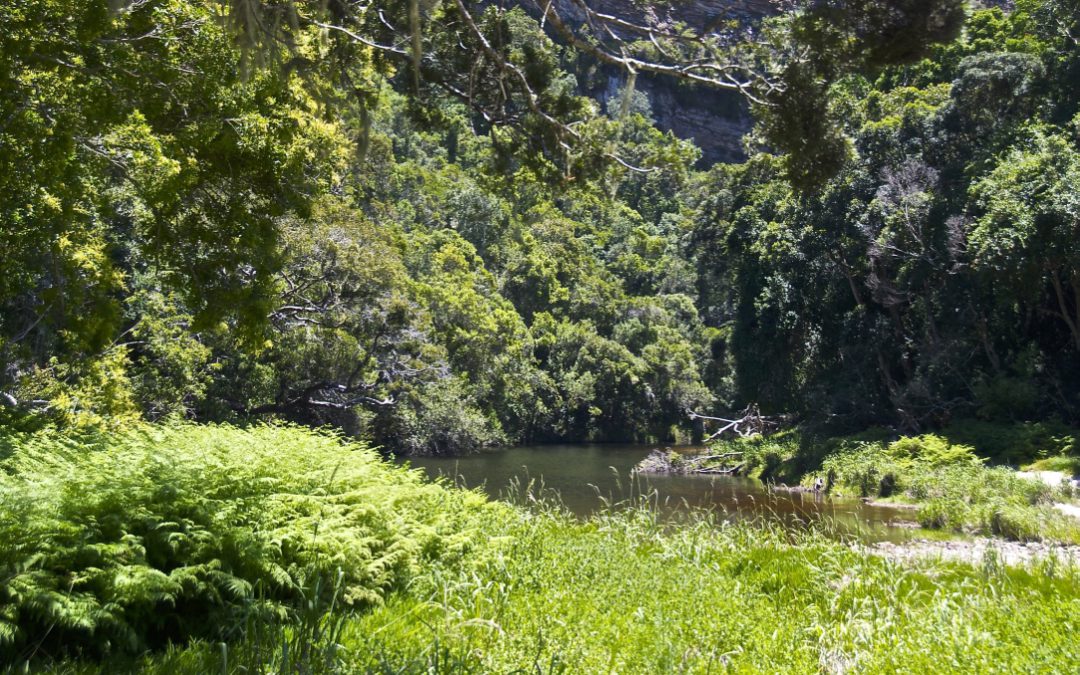What is it about nature?
I was hooked after my first day on the Otter Trail. Having arrived straight from a busy and stressful job, still ruminating over past conversations, I noticed that gradually I began to hear the sound of the ocean and the birds in the trees, my internal chatter receding further and further away, until all I was aware of was the rhythmic beat of my steps on the earth. Now, I return to nature often to help clear my mind and find serenity. So, what is it about being in nature that has this positive psychological effect? It turns out that Scientists now have evidence that being in nature has a profound impact on our brains and our behaviour, reducing our anxiety and stress, as well as increasing our attention capacity, creativity, and our ability to connect with other people.
Researcher David Strayer, of the University of Utah says we are now seeing changes in the brain and body that suggest we are physically and mentally more healthy when we are interacting with nature – and to my mind these findings could not come sooner, especially as I see our children these days spending more and more time indoors and online.
What is the science showing us:
Being in nature decreases stress and makes you happier
We know that any physical activity can reduce stress and anxiety. But, there’s something about being in nature that has a beneficial effect on stress reduction, above and beyond what exercise alone might produce. Research shows that those who walk in nature have significantly lower heart rates, greater relaxation and less stress, and report better moods and less anxiety, than those who walk in urban settings. The reasons for this effect are unclear; but scientists believe that we evolved to be more relaxed in natural spaces.
Nature relieves attention fatigue and increases creativity
Today we are surrounded by technology constantly pulling for our attention. But many scientists believe our brains were not made for this kind of information bombardment, and that it can lead to mental fatigue, overwhelm, and burnout, requiring “attention restoration” to get back to a normal, healthy state. Strayer believes that being in nature restores depleted attention circuits, which can then help us be more open to creativity and problem-solving.
Nature may help you to be kind and generous
Paul Piff of the University of California conducted an experiment in which participants staring up at a grove of very tall trees for as little as one minute experienced measurable increases in awe, and demonstrated more helpful behavior than participants who spent the same amount of time looking up at a high building. The researchers concluded that experiencing the beauty of nature increases positive emotion, perhaps by inspiring awe, and the sense of being part of something bigger than oneself, which then leads to more generous behaviours.
While the research may not be conclusive I think it points to what we all intuitively know – that there’s something about nature that makes us feel more alive! It makes us feel better, think better and may prompt us to help others. We are lucky enough to live in one of the most beautiful parts of the world, with nature on our doorstep – let’s get out there with our families and appreciate it.
As Strayer says “If you are constantly on a device or in front of a screen, you’re missing out on something that’s pretty spectacular: the real world.”

